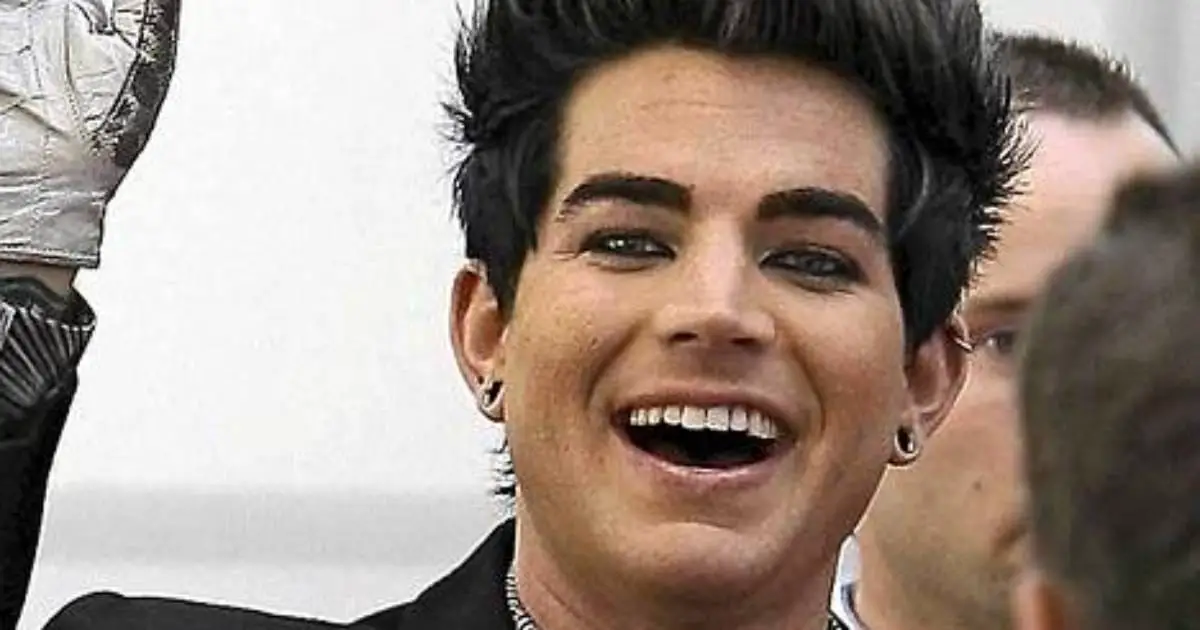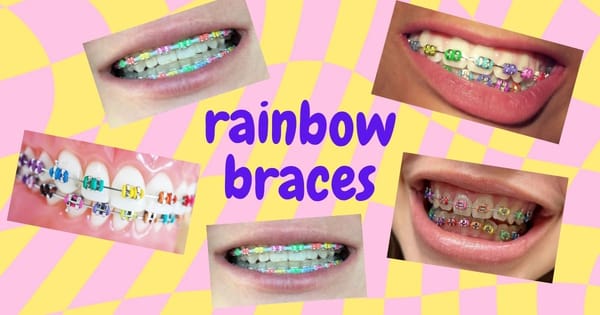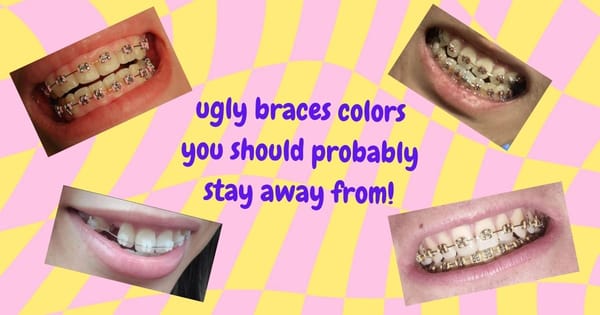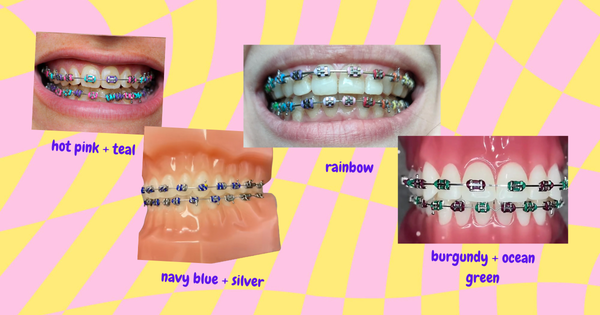Adam Lambert Teeth: Exploring the Rockstar's Naturally Dazzling Smile

Adam Lambert, the powerhouse vocalist known for his soaring vocals and captivating stage presence, possesses a smile as captivating as his voice.
While it's easy to assume that a rockstar's dazzling grin is the result of extensive dental work, evidence suggests otherwise.
Adam Lambert, contrary to speculation, does not have veneers. His smile is a testament to naturally beautiful teeth and the importance of maintaining them throughout the years.
Does Adam Lambert have veneers?
No, all signs point to Adam Lambert having naturally beautiful teeth, free from veneers. His smile, while exhibiting subtle changes over time, consistently displays characteristics of natural teeth.
Key Takeaways:
- Adam Lambert does not have veneers; he possesses a naturally stunning smile.
- Photographic evidence suggests he may have had braces in his younger years, contributing to his well-aligned teeth.
- Recent photos reveal subtle flattening of his tooth edges, potentially a result of bruxism, highlighting that even naturally beautiful teeth can experience wear and tear.
- His case emphasizes the importance of protecting teeth from grinding, regardless of whether they're natural or enhanced with dental work.

Adam Lambert’s Early Smile
Before achieving global stardom, Adam Lambert captivated audiences with his powerful voice and a smile just as captivating as his vocal range.
Photos from his early career, pre-dating his "American Idol" fame, provide a glimpse into his naturally handsome smile.
These early images reveal a consistent pattern:
- Naturally Aligned Teeth: His teeth, even in his younger years, appear remarkably well-aligned, with no visible crowding or spacing issues. This suggests he might have undergone orthodontic treatment, such as braces, during his adolescence, laying the foundation for his current straight smile.
- Harmonious Shape and Size: His teeth exhibit a natural variation in shape and size, with his central incisors slightly larger than his lateral incisors – a common and desirable characteristic of natural smiles.
- Incisal Translucency: His teeth possess a natural translucency, allowing light to pass through the edges, a hallmark of healthy, natural enamel. This subtle detail creates depth and dimension, further enhancing the visual appeal of his smile.
- Absence of Veneer Indicators: Importantly, Adam's early photos lack telltale signs of veneers, such as overly white, uniformly shaped teeth, or perfectly smooth edges. His smile exudes a natural charm that's both captivating and undeniably genuine.

Why Adam Lambert's Teeth Look So Good Naturally
In an industry where blindingly white, perfectly aligned smiles are often the norm, it's easy to assume that anyone with such a smile must have undergone extensive dental work, particularly veneers.
However, Adam Lambert's case reminds us that sometimes, a stunning smile is simply a gift of genetics and proper care.
Several factors debunk the myth of Adam Lambert having veneers:
- Incisal Translucency: One of the most significant giveaways of natural teeth is the presence of incisal translucency. This refers to the way light subtly passes through the edges of natural teeth, creating a sense of depth and vitality. Veneers, especially older versions, often lack this translucency, making teeth appear opaque and somewhat artificial. Adam Lambert's teeth, across photos spanning his career, consistently exhibit this natural translucency.
- Subtle Variations: Natural teeth are rarely perfectly uniform. They have subtle variations in shape, size, and even color. These variations, often erased by veneers, are what make a smile unique and visually appealing. Adam's teeth exhibit these subtle imperfections, further supporting their natural state.
- Presence of Texture: Another indicator of natural teeth is the presence of subtle texture. Our teeth are not perfectly smooth surfaces. They have fine lines, ridges, and even microscopic pits and fissures. Veneers, in an attempt to create a flawless appearance, often lack these natural textures. Adam Lambert's teeth, upon close examination, retain some of this natural texture, further supporting their authenticity.

Addressing the Flattening Edges
While Adam Lambert’s smile remains undeniably dazzling, a closer look at recent photos reveals a subtle change: a slight flattening of his tooth edges.
This observation, while seemingly insignificant, offers a valuable lesson in the natural aging process of teeth and the importance of protecting our smiles, even those deemed naturally perfect.
Teeth, whether natural or enhanced, are subject to wear and tear over time.
Factors like chewing, grinding, and even brushing can gradually wear down enamel, the hard, protective outer layer of our teeth.
In Adam's case, the flattening of his tooth edges suggests potential bruxism, a condition characterized by teeth grinding or clenching.
Bruxism, often linked to stress and anxiety, can lead to several dental concerns, including:
- Enamel Erosion: The grinding action wears down enamel, making teeth more susceptible to sensitivity, decay, and discoloration.
- Chipped or Fractured Teeth: The excessive force exerted during grinding can chip or even fracture teeth, requiring more extensive dental work.
- Changes in Tooth Shape: Over time, bruxism can alter the shape of teeth, leading to a shorter, flatter appearance, as seen in Adam's recent photos.
It’s crucial to emphasize that bruxism affects individuals with both natural teeth and veneers.
While veneers can provide a cosmetic solution for some issues, they don't make teeth impervious to the forces of grinding and clenching.
Addressing bruxism is essential for protecting the longevity of both natural smiles and those enhanced with dental work.
The Importance of Night Guards
Adam Lambert’s subtle tooth wear highlights a crucial aspect of dental health often overlooked: the importance of protecting our smiles from the damaging effects of bruxism, even those blessed with naturally strong teeth.
Enter the night guard, a simple yet effective appliance designed to safeguard teeth from the unconscious grinding and clenching that often occurs during sleep.
Night guards, also known as bite guards or mouth guards, act as a protective barrier between the upper and lower teeth, absorbing the forces of bruxism and preventing direct contact that can lead to wear and tear.
Several types of night guards are available:
- Custom-Made Night Guards: These are crafted from impressions of your teeth, ensuring a precise and comfortable fit. Custom-made guards typically offer superior durability and are the preferred option for long-term use.
- Boil-and-Bite Night Guards: These over-the-counter options offer a more affordable alternative. They are softened in boiling water and then molded to the shape of your teeth for a semi-custom fit.
While over-the-counter guards can be helpful for occasional use, consulting with a dentist for a custom-made guard is recommended if you suspect you grind your teeth regularly.
A dentist can assess your bite, identify signs of bruxism, and ensure a proper fit for optimal protection.
Exploring Night Guard Options and Prices
Investing in a night guard is a proactive step toward protecting your smile and preserving the health of your teeth, whether they're naturally beautiful like Adam Lambert’s or enhanced with cosmetic work.
Fortunately, night guards are generally affordable, with various options to suit different budgets.
- Over-the-Counter Night Guards: These readily available options can be found at most drugstores and online retailers. Prices typically range from $15 to $50, making them an accessible option for those seeking basic protection or occasional use.
- Custom-Made Night Guards: For a more personalized and durable solution, dentists offer custom-made night guards. These are crafted from impressions of your teeth, ensuring a comfortable and secure fit that maximizes protection. Custom-made guards typically cost between $100 and $500 or more, depending on the dentist's fees, the materials used, and the complexity of your bite.
While custom-made guards come with a higher upfront cost, their superior fit, durability, and level of protection often make them a worthwhile investment for long-term oral health.
Adam Lambert: Inspiring Confidence, One Natural Smile at a Time
Adam Lambert's journey, from his "American Idol" debut to his reign as a rock icon, inspires us in more ways than one.
Beyond his vocal prowess and captivating stage presence, Lambert reminds us that true confidence shines brightest when we embrace our natural assets.
His naturally stunning smile, even with the subtle effects of time and potential bruxism, underscores that perfection isn't a prerequisite for a captivating grin.
Instead, prioritizing oral health, seeking professional dental care when needed, and protecting our smiles, whether natural or enhanced, are the keys to a lifetime of confidence.
Let Adam Lambert's story inspire you to embrace your unique beauty, care for your smile, and shine brightly, just as you are.





